Back to
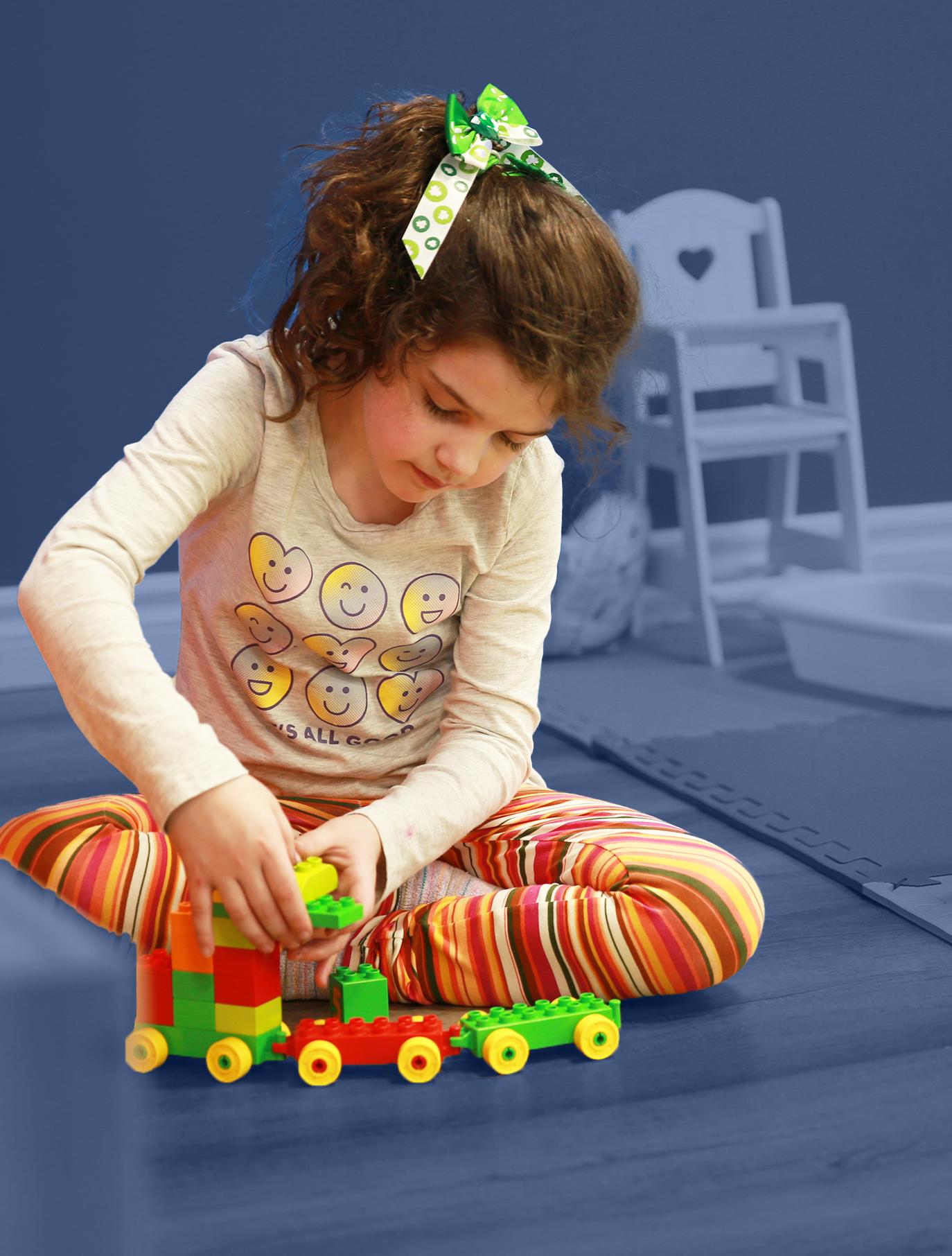


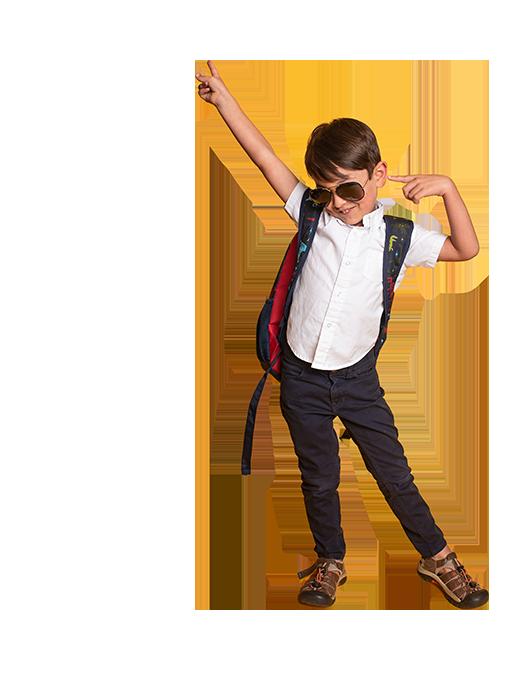
September brings about a time of change for families. It is full of excitement, renewal, and perhaps some apprehension. Some families will have children and youth entering into a new grade, starting at a new school, or even starting school for the very first time.
As you start your journey and transition into the new school year, we want you to know that Bethesda is here to support you.
We designed this Back to School Guide to provide you with some practical tips and strategies to support a successful school year. We will share some perspectives about transitioning into school, strategies for successful morning routines, tips for starting back to school when you’re feeling anxious or unsure, transitioning into Grade 9, and some other general resources that Bethesda offers. n

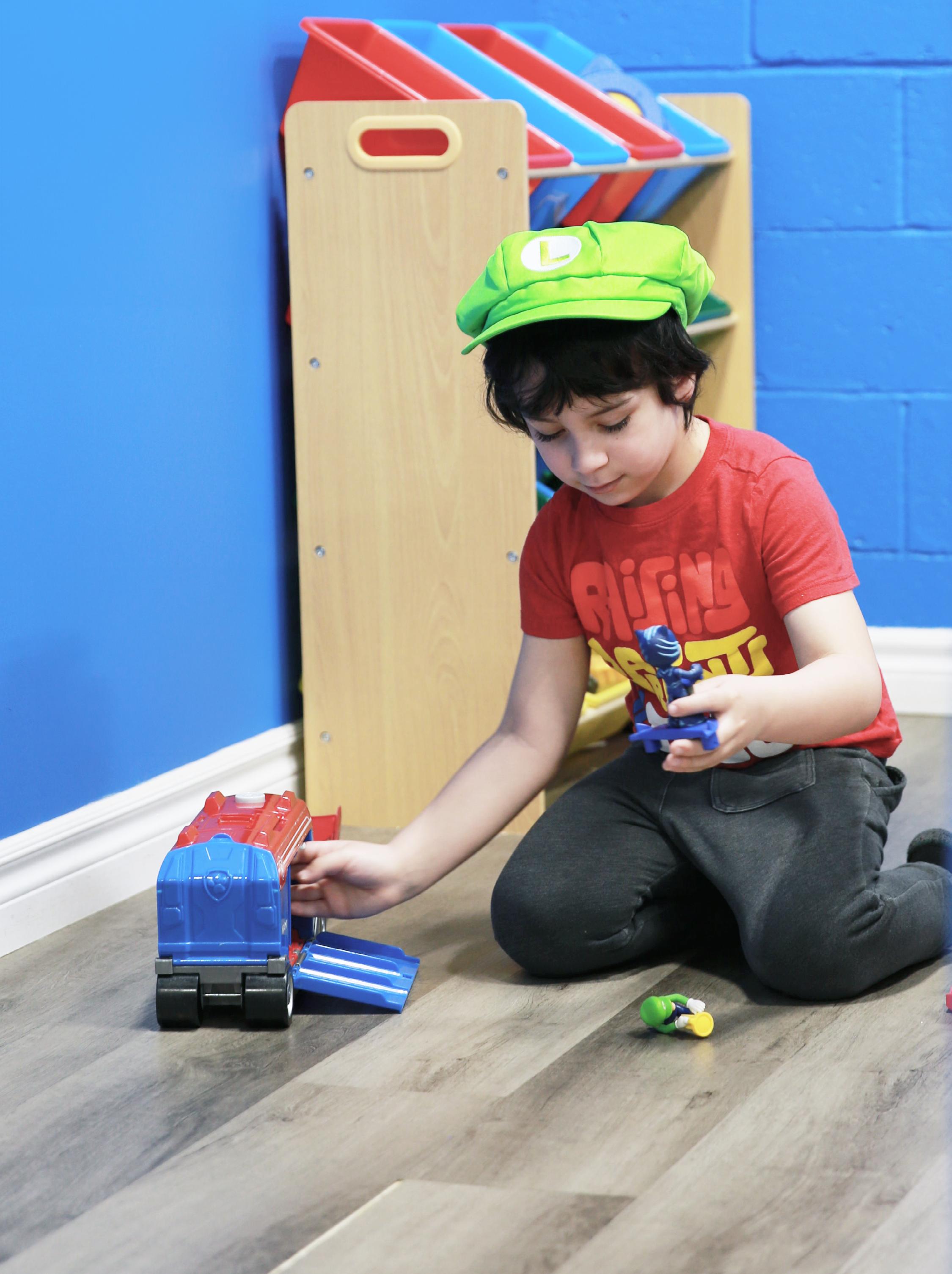
Back to School with Bethesda Page 2
Transition to Kindergarten Page 6
Starting Kindergarten: A Parent’s Perspective Page 8
Getting Back into Routine Page 12
Transition to High School Page 16
Noel’s Top Ten Tips for Having a Positive Transition to High School
Page 18
Mental Health and Wellness Page 20
Looking Ahead to the New School Year Page 24
For a lot of families, September brings about a very important milestone…their child’s very first day of school! The majority of children entering into kindergarten this year for the first time were born in 2019. This means most of these new kindergarteners spent their first years of life during a pandemic. For some, it may be their first time away from their parents and their first time being around large groups of children.
The transition can come with a wide range of emotions. We want to take a minute and acknowledge that for caregivers specifically, it’s okay to feel these emotions. Whether you are excited, nervous, apprehensive, happy, worried; all feelings are valid!
Sometimes, you may feel many emotions all at once. It’s okay to be excited and proud of your child, as well as to feel sad that their preschool years are coming to an end. You can feel worried about how they’ll be on their own, and feel confident that they will be safe.
As your little kindergartener starts school this year, remember that they are resilient. Every child has their own unique set of interests and skills, and they will have lots to contribute to their classroom. Your child is strong and capable. We are so excited to see where this new year takes them! n
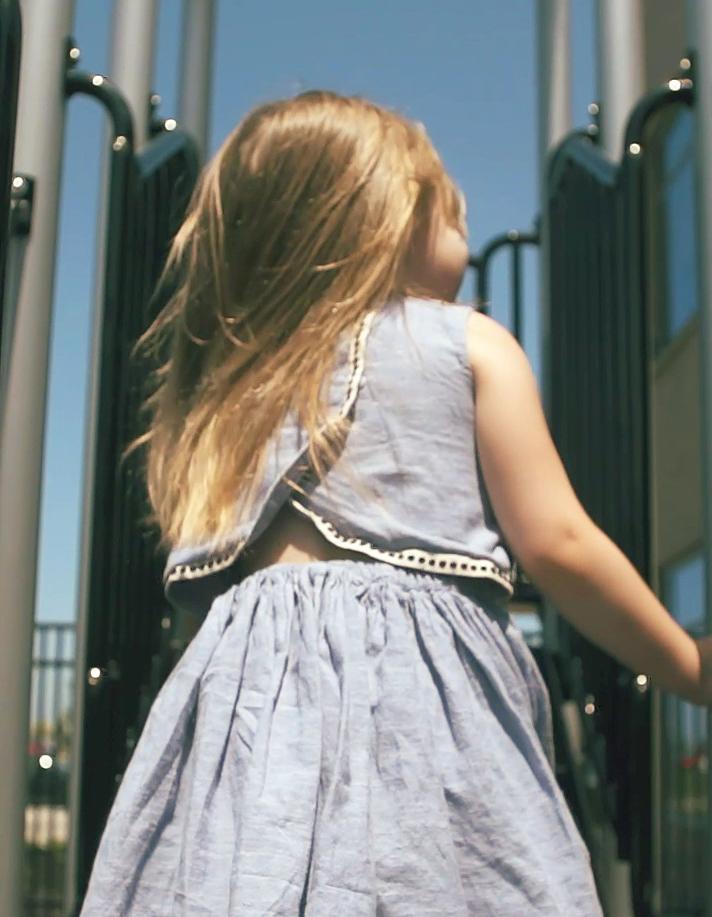
Daniela’s son Franklin participated in the Entry to School (ETS) Program in 2022 leading up to his transition to Junior Kindergarten in September 2022. She shared her experience and reflections in an interview with Cassidy, an ABA Interventionist at Bethesda.
Franklin learned to be around other children and to be more social in a structured enviornment with help from the Entry to School Program.
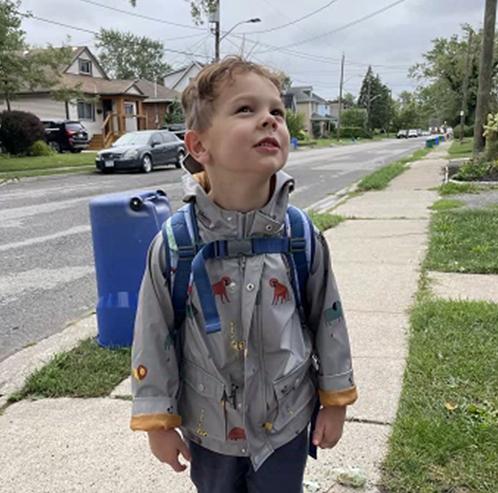
Describe your experience in the Entry to School Program and how you think it helped with your son’s transition to junior kindergarten?
I really enjoyed the program. There were a lot of options for families to access service.
I think it helped him by being around other children, to be more social and in a structured environment. He was able to have a true teacher experience where assignments were set up and he was able to get used to those transitions, even the little transitions and routines like sitting at the table to eat!
The school bus field trip he took with his ETS class stands out as an important experience. He was able to explore a school bus and
become familiar with it. On the first day on school, he was totally fine to get on the bus! I was more scared than he was!
I enjoyed how the team worked with parents. There were big goals for the classroom but also specific goals to our child, for him it was food and picky eating.
We felt staff took our parent goals into consideration and provided 1:1 support around these goals.
What was your biggest fear about Franklin entering school?
My biggest fear was behaviour issues in school. There was a worry that kids might get in his space or take toys and he might display some negative behaviours. I was really worried about getting that call home from school during the day.
I received calls throughout the year if he was sick, but I never received a call about
his behavior.
I believe it helped him having this exposure to other kids prior to going to school. In the Entry to School program they also helped to teach him how to ask for space if he was getting uncomfortable with a peer being too close.
What is one thing you wish you knew before your child started kindergarten for the first time?
It is not as bad as you think!
I was so afraid of the calls I might receive and that he may be left behind, but the school was staffed accordingly and I felt supported in the transition. I feel like he was treated just the same as his peers in
terms of participating and his education.
We got all the crafts and assignments that he was doing in class back daily. He participated in all the school excursions.
QWhat words of wisdom do you have for parents of children who are entering school for the first time this year?
Trust your gut and trust your child. Give them the benefit of the doubt.
The first day of school is absolutely terrifying, but my son got on that school bus and was an absolute champ. I know, I followed the bus to make sure! He was a champ.
Trust that they are fine and they will do well. I baby him too, but he will go down that slide. He wants independence and you have to be
able to let them do it or they won’t.
Now that he is on summer break, he is asking for school!
AAI am sure as he gets older and has homework and assignments that will change, but give them the benefit of the doubt. n
The first day of school was terrifying, but Franklin got on the school bus and was an absolute champ.

As September approaches, you may begin to think about all the routines the school year brings. Helping your child get back into routine now can help their transition into a structured school year!
Setting up routines early will help your child ease into the new school year.

• Start practicing now
• Start small with a single routine
• Be consistent. Continue to practice the routine at the same time every day
• Use reinforcing items to increase motivation to get through a routine (get dressed, brush teeth, have breakfast, then 10 minutes of play dough)
• Offer choices! (ex., cereal or toast for breakfast, bubblegum or mint toothpaste, green or yellow shirt)
Tip: Timers can be helpful in showing your child how much time is left in a certain part of a routine (i.e., homework, brushing teeth, morning tv time)

Visuals can be useful for some learners to be able to visually see what is expected of them, to help them to stay on task and to have more independence in their routine.
Increase motivation to complete a task by showing the rewarding task that will follow. Give choice in what reinforcing item or activity your child would like to do.

Example: First get dressed, then TV
Allows your child to see what is expected of them. It may be helpful to follow lesser preferred tasks with a reward to help your child move through their schedule. Child may remove the picture when an activity is completed or put a checkmark beside the picture as they complete each item.
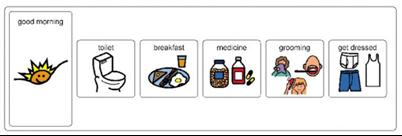
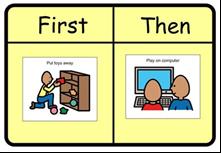
Our schedules are more flexible in the summer. We are out and about doing different activities and visiting family and friends. By the second week of August, I start thinking about re-establishing regular bedtime and morning routines.
I specifically plan activities for the mornings the last week of August to help my son get used to waking up to an alarm again. We also have a calendar on our fridge that I use to get him excited about starting school. I put a picture of his favourite school activity, gym time, on the first day of school so that I can focus on something he loves when we talk about starting school again.

The transition from Elementary to High School is a big deal for all students. There are many adjustments to make to new people, environments and expectations. Have you thought about all the new experiences your child will have in high school?
for a successful transition?
• Become familiar with your school’s website and available resources including social opportunities like clubs or sports
• Identify a safe person or place for times of high anxiety or challenges with self-regulation (i.e. Resource teacher or room)
• Help your child come up with a plan on how to spend their lunch and other breaks
• Role play common challenges so that your child feels more comfortable knowing what to do
• Consider enrolling your child in Bethesda’s Transition to High School summer group the summer before they enter grade 9
New and more complex social interactions
Navigating a new environment
Moving to different classrooms throughout the day
Increased independence
Learning how to advocate for your own needs
Adjusting to different teachers, expectations and rules
Taking public transit or walking to school
Making new friends and navigating group work
Earlier and longer classes
Larger building with many more students
Lack of structure during lunch breaks
Get to know the staff in the Resource Department. They can be helpful and comforting during times of stress.
Be sure to ask for help from the classroom teachers and let them know if things become overwhelming.
Don’t be shy about using sensory tools such as a lap pad or squishy balls during the day as they can be a big help regulating emotions and make your schoolwork easier.
Use technology to help take notes or type assignments if that is easier than writing.
Communicate with your teachers by email and the online platform that your school board uses. This is a great way to stay informed and meet deadlines.
Use social media websites that your high school supports such as Facebook and Instagram to keep track of special days/ events happening in your school.
Get involved with clubs or groups that you enjoy. Drama and music classes were a great place to meet friends with similar interests.
Try sitting with a group at lunchtime, even if it’s difficult at first. Look for someone eating alone who may be lonely and appreciate your company. If you have a brother or sister in the same school, you can join them for lunch. It’s ok to eat alone if you need some space to collect your thoughts.
Visit the high school ahead of time if possible to get to know where your locker is and where your classes will be. You may even get to meet some of the staff during your visit.
Think of high school just like elementary school but bigger. Many things are the same like the subjects and classrooms. Having 4 subjects at a time makes it easier to focus on just those subjects without having to worry about all of the subjects at once like in elementary school.
Noel offers his tips for a positive transition into high school.

Back-to-school can be a difficult time for children. The freedom of the summer means enjoying things like a later bedtime, more time to play, and fewer obligations on their time and attention. Back-toschool means more routines, higher demands, expectations on their time, and less time to engage in their preferred activities.
While this return to the fray can be exciting and energizing for some students, for others it brings a sense of dread and anxiety. No matter how the idea of back-to-school makes your child feel, there are helpful strategies that you can put into place now to support their mental health, and their ability to transition successfully into the school year.
Consider things like bedtimes, wake up times, and mealtimes. During the summer, these events that are markers for the passage of time throughout the day tend to be more flexible. Small shifts now will help ensure that when school starts, implementing the necessary timelines and routines needed will not be such a shock to your child’s system.
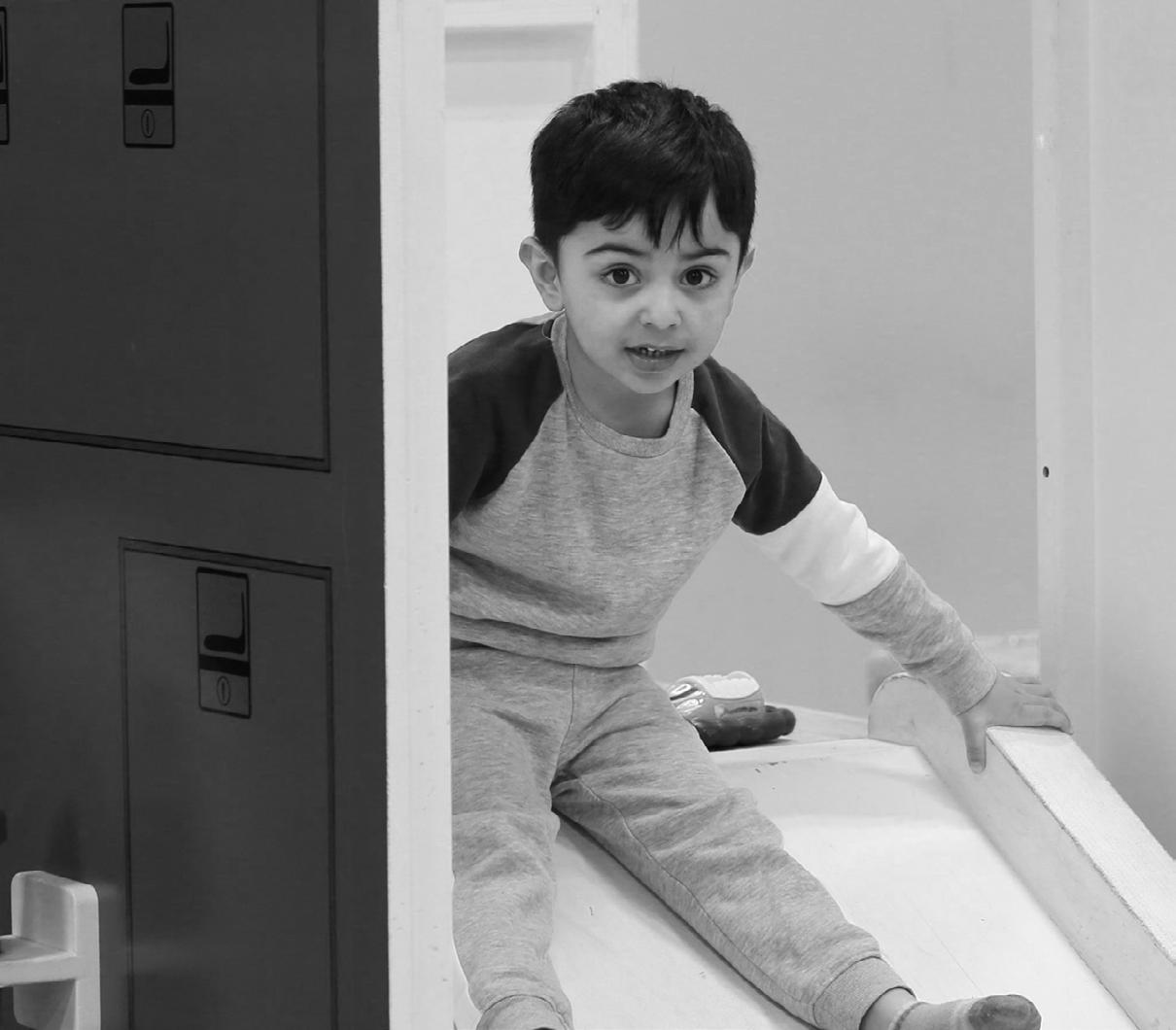
Do not wait until school starts to get your kids back into a routine
Granted, we do not want kids to feel that their summer is being rushed, or that it is coming to an end too quickly. But a few light conversations sprinkled into the summer fun can help set your child up for success. While you’re driving to the grocery store, ask what your child feels they need to be successful in the new school year. While sitting at the beach, ask about any questions or concerns they may be having. Negative thoughts that have time to fester without being challenged can cause longerlasting concerns for your child. Giving your child space to communicate will encourage them to express any negative thoughts or feelings they are having about going back to school, with enough time so that you can support them in brainstorming ways to feel better about their concerns.
Emotions like to feed on themselves, and children especially can pick up on the non-verbal communication another person is giving off, and have it impact their own feelings. So, if you are feeling stressed and anxious about your children going back to school, they have probably noticed, and it could be adding to their own stress, even subconsciously. The best way to help children to regulate their emotions is for us to maintain control and regulation of our own. This term is called co-regulation.
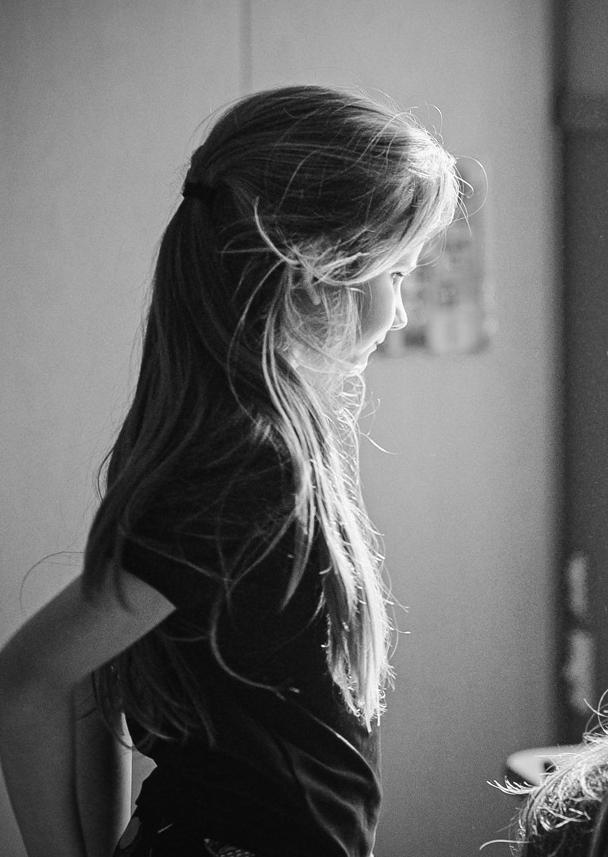
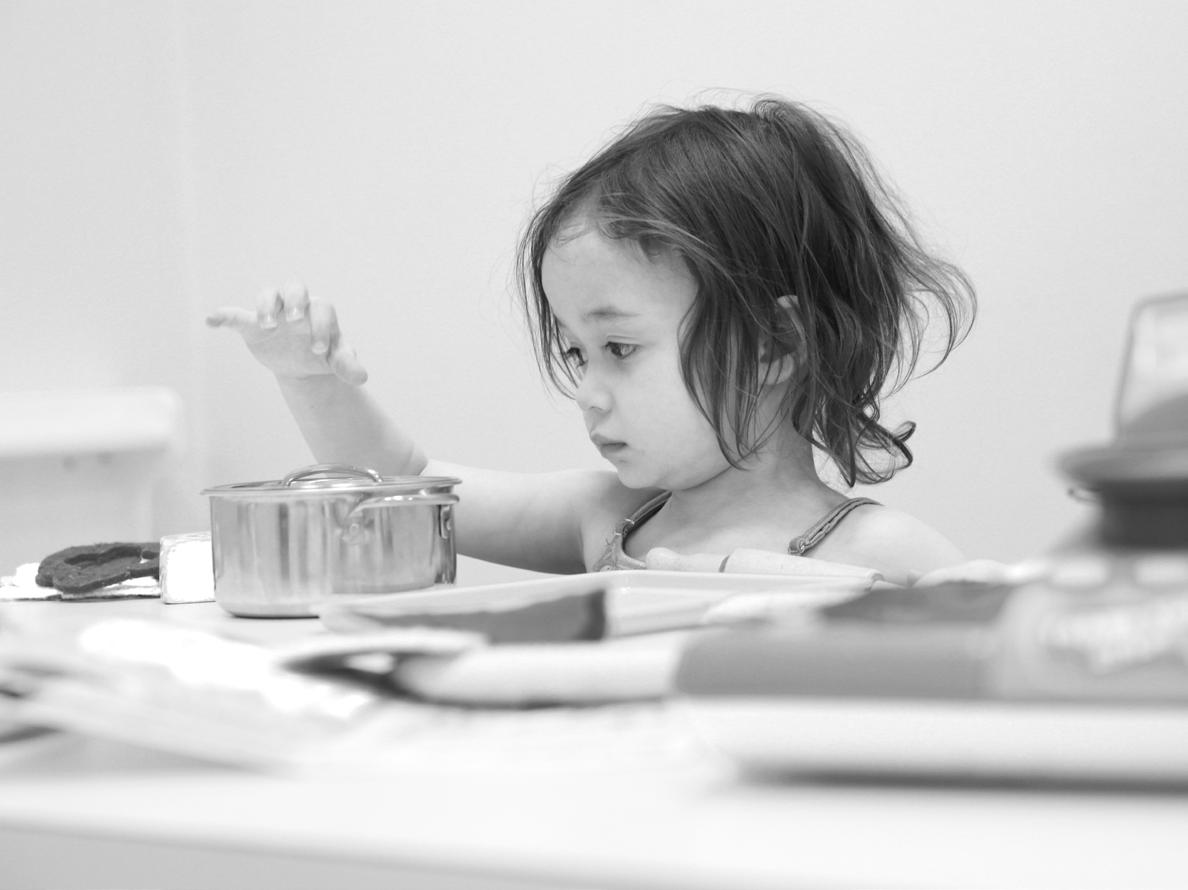
Often times the fear of the unknown is a major cause for concern when a child thinks of back to school. What will my teacher be like? Will my friends be in my class? Will I be able to do the work that is expected of me? Answer the questions that you know the answers to. But, when you do not know the answer to something, it is ok to tell your child so. By sitting with your child in those feelings of discomfort and uncertainty, you are helping them to build coping and resiliency skills. Let your child know that their feelings are valid, and that many children their age are probably feeling similar concerns, but that it is ok to not have all of the answers right away.
Remind them that some questions will be answered in the first few days of school, and some they will not find out until later into the school year. Brainstorm with your child the things they do have the answers to; the things they can control; and the things they can problem solve. Acknowledge that there are other things that might make them (or you) feel uncomfortable not knowing, and that that is ok. Remind them that you will be with them and will support them as they go through the school year, and that no matter what comes up, you will get through it together.
The morning rush can put a negative spin on a child’s whole day. Once school starts, if they are feeling hurried and worried that they forgot something, or if they do actually forget their lunch, or their gym shoes, or that piece of homework they need to turn in, it can create a negative mindset that overshadows the rest of their day. Try get¬ting as many things as possible done the night before, and build it into an evening routine. Have your child lay out what they are going to wear the night before; help them get the lunches packed and into the fridge; and double check that backpacks are packed and ready for the day before they go to bed. Then, all that needs to happen in the morning is their usual hygiene routine, getting dressed, eating breakfast, and getting out the door. It allows for a smoother start to the day, which helps them start off on the right foot, and in a more positive frame of mind.
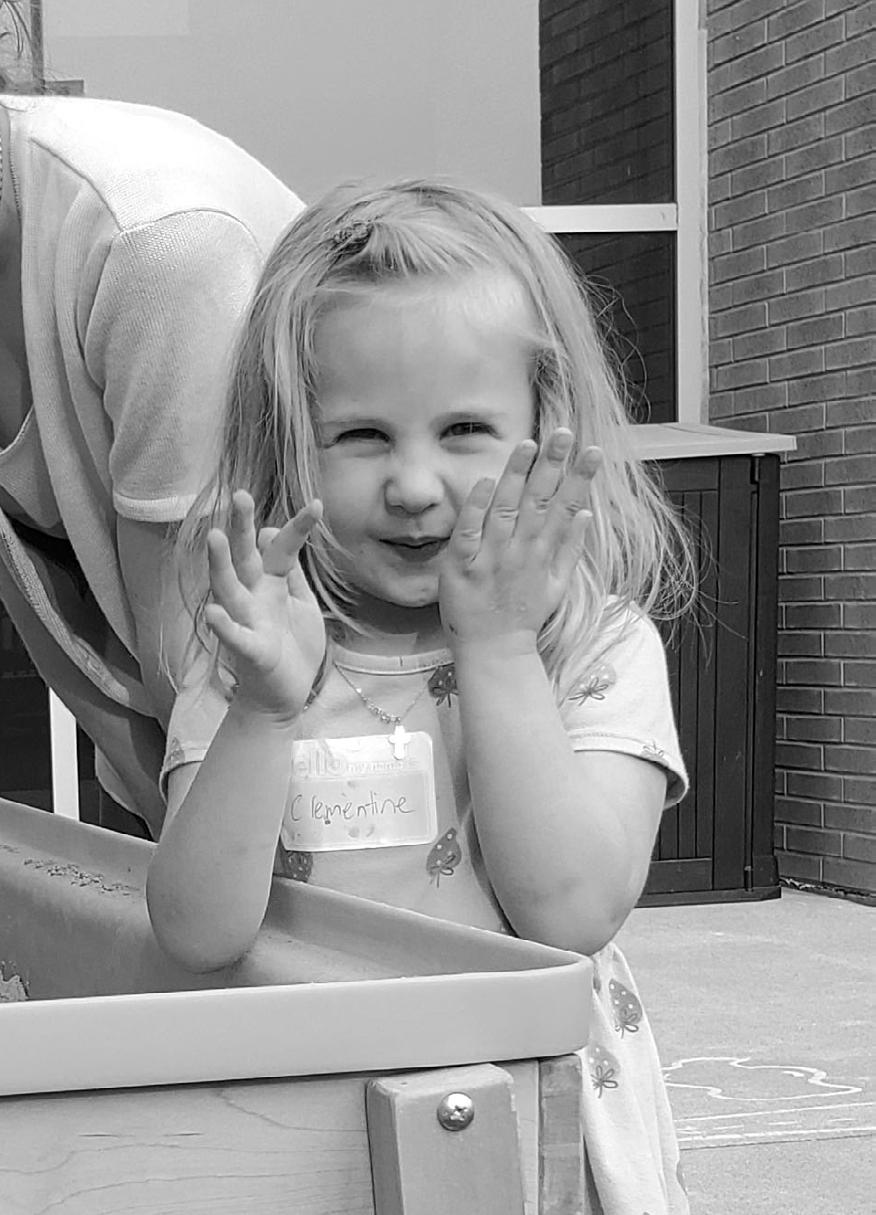
It’s okay to not have all the answersTake the chaos out of the morning rush
If your child is managing mental health concerns that are impacting their day-to-day life, it can be helpful to have an open line of communication with their school. With your child’s consent, let the Principal, Teacher, and any supporting staff like Educational Assistants or Learning Resource Teachers know that they may be struggling with certain aspects of being at school. Use the ideas that you and your child brainstormed together, and ask the school which strategies can be implemented within the classroom setup to help foster a positive and successful environment for your child.
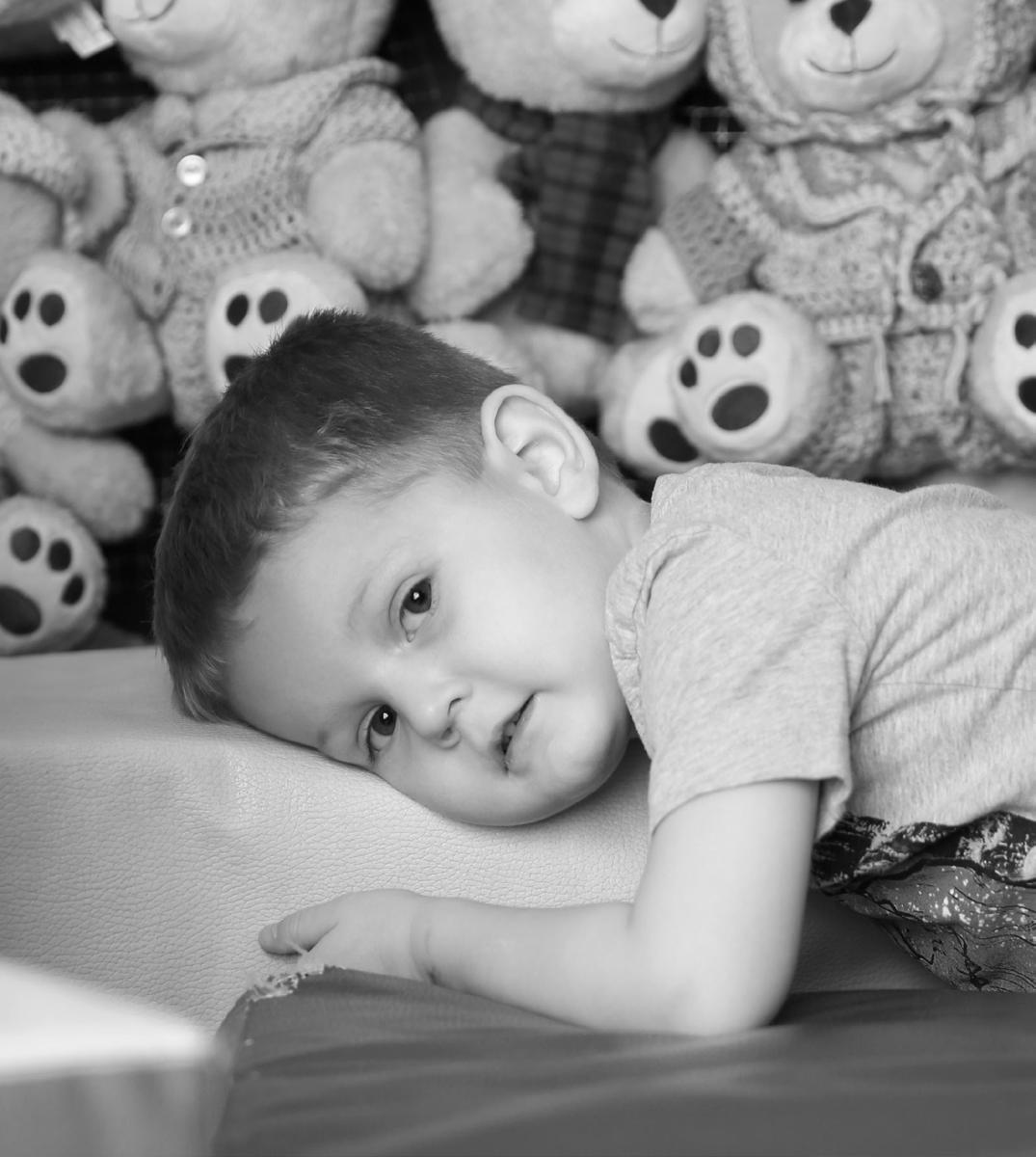
Back-to-school can be a stressful time for any child, let alone someone who struggles with changes in routine and structure. By planning ahead, having open and calm communication, and focusing on controlling the things that are within our control, we can create as smooth a transition back to school as possible.
There will likely be bumps in the road, and that is ok. Acknowledge the successes as well as the parts of the routine that need to go back to the drawing board. Let your children know that everyone makes mistakes, and that when things do not go the way we want them to today, we can create a new and better plan for tomorrow. n
We hope the information and perspectives provided in this Guide helps families feel excited about the school year and equipped with knowledge and resources to support a smooth transition back to school.
Please note: if the timing of these workshops don’t work for you, please contact our service coordination line to book an individual consultation appointment.
Parents are invited to the first kindergarten readiness workshop with a focus on general skills for attending school. This workshop will review how to practice turn taking and social skills.
DATE/TIME Wednesday
August 23 6:30pm - 7:30pm
LOCATION Virtual
Parents are invited to the second kindergarten readiness workshops outlining general readiness skills that will be used in the kindergarten classroom. This workshop will review how to teach your child to follow a picture activity schedule to increase independence with activities and how to teach your child independence with common routines in the classroom.
DATE/TIME Wednesday
August 30
6:30pm - 7:30pm
LOCATION Virtual
Are you feeling stressed and anxious about your child starting school for the first time in September? You are not alone! This is a big transition for not only the children, but also the caregivers. Come join our monthly therapeutic support group where you get the opportunity to connect with other caregivers who have young children with ASD. This group seeks to create a space where you can discuss your thoughts and feelings in a safe and nonjudgmental environment. You are incredible caregivers who dedicate every day to making sure your child has everything they need, let’s use this group to make sure your needs are also met.

DATE/TIME Mondays 7:00pm - 8:00pm
September 18
October 16
November 20
December 18
LOCATION Virtual
Come and enjoy an in-person interactive workshop at Bethesda’s Niagara Family Centre to gain skills and create materials to assist your child with the back to school routine. Bethesda staff will have visuals prepared for you to take home and personalize for your child’s needs. Therapists will provide guidance and tip sheets on how to best use these tools. Visuals such as first then boards, morning routine schedules, and choice boards will be provided. Parents are welcome to come by anytime between 4:30 and 6:30 to pick up their visuals. Time to get geared up and ready for the Fall Back to School Routine!
DATE/TIME Thursday August 31
Fun for the whole family at Bethesda’s Back to School Safety Carnival; enjoy safety themed games in our new playground, try out carnival events, enjoy treats from an ice cream truck, climb aboard a fire truck and learn about fire safety. Enjoy mingling with friends and get ready for a successful back to school!
AGE
All ages
*Parents are required to stay with their children
DATE/TIME
LOCATION In person at Niagara Family Centre 3310 Schmon Parkway Thorold, ON, L2V 4Y6
August 25 9:30am - 11:30am or 1:30pm - 3:30pm
Please only register for one of the time blocks below.
Morning Group 9:30am - 11:30am register
Afternoon Group 1:30pm - 3:30pm register

Please reach out if you have any questions or you want to learn more about the services and supports available to your family, including free Foundational Family Services such as brief consultations, parent/ caregiver workshops, workshops for youth, groups for children and youth, and more!
If you have any specific questions or need some help navigating the services that are available to you, please feel free to reach out to Bethesda’s Service Coordination line at:
serviceinfo@bethesdaservices.com or 905.684.6918 ext. 170
